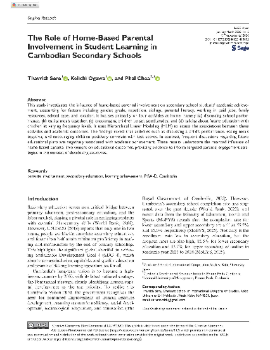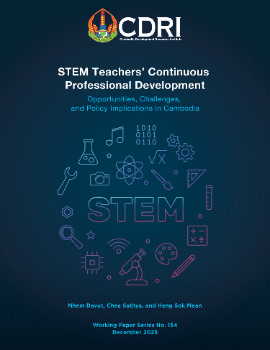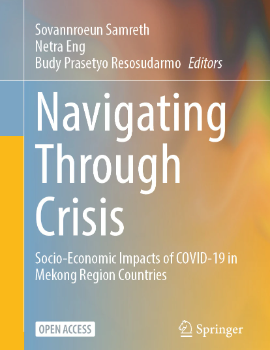
Permeability in Cambodian Post-secondary Education and Training: A Growing Convergence
Keyword: Permeability, student mobility, post-secondary, education and training, qualifications framework, Cambodia
Abstract/Summary
This study explores the permeability between Cambodia’s post-secondary technical and vocational education and training (TVET) and academic higher education systems. Permeability refers to the ability of learners to transfer across educational tracks and qualification levels, promoting lifelong learning and social inclusion. Drawing on interviews with key informants from 15 institutions and policy document analysis, the study finds that while both sub-sectors have adopted credit systems under the Cambodia Qualifications Framework (CQF), actual student mobility between TVET and academic tracks remains limited. The most common pathway is vertical progression within the same track, particularly from TVET higher diploma to bachelor’s programs. Barriers to cross-track transfer include inconsistent recognition of prior learning, differing quality assurance mechanisms, and weak inter-ministerial coordination. The study also observes a growing convergence between the two systems: TVET institutes increasingly offer bachelor’s degrees and business-oriented majors, while universities introduce professional tracks and internships. This hybridisation risks diluting the distinct missions of each sub-sector. Policy recommendations include establishing a unified framework for credit transfer, enhancing program quality based on institutional strengths, and incentivising industry collaboration to improve TVET’s appeal and relevance. Strengthening permeability can expand educational opportunities and better align training with Cambodia’s evolving labour market needs.



